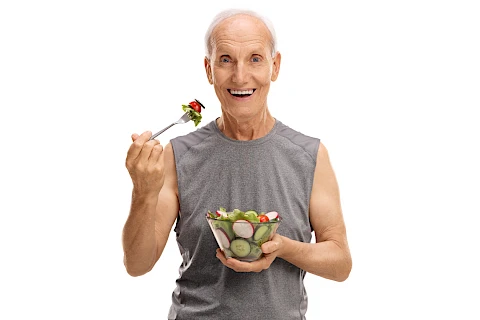
June is Fresh Fruit and Veggie Month, a perfect time to celebrate the bounty of summer produce and its importance in our diet, particularly for seniors. Fresh vegetables add flavor, variety, and essential nutrients crucial for maintaining good health as you age. However, adding them to your diet isn't always as easy as you hoped. Fortunately, there are several strategies you can use to add more vegetables.
The Benefits of Summer Vegetables
Summer vegetables are nature's gift, bursting with flavor and high nutritional content. For seniors, they not only provide essential vitamins and minerals but also fiber, which aids digestion and heart health. Furthermore, these vegetables are low in calories and high in water content, which is crucial for preventing dehydration in the summer heat, a concern for many seniors. Eating fresh, seasonal fruits and vegetables offers significant health benefits.
The Best Summer Vegetables for Seniors
When choosing these vegetables, consider their nutritional value as well as how easy they are to prepare and eat. Here's a snapshot of some of the best summer veggies for seniors:
- Tomatoes are both tasty and versatile. They contain potassium, vitamin C, and the antioxidant lycopene, which benefits heart health. Cucumbers, primarily made of water, can help keep seniors hydrated and are easy to add to salads or consume as a snack.
- Zucchini is another summer staple, high in vitamin C and easy to cook in various ways.
- Bell peppers, available in various vibrant colors, are an excellent source of vitamins A, E, and C and are lovely in everything from salads to stir-fries.
- Eggplants, high in fiber and low in calories, can be baked, grilled, or added to various dishes.
- Corn, a high-fiber food, can be boiled, grilled, or added to salads or soups.
- Green beans are a good source of vitamins A, C, and K, calcium, and fiber. They're delicious steamed, boiled, or stir-fried.
When choosing summer vegetables for seniors in their lives, caregivers should consider personal preferences as well as the specific health benefits of those options.
How to Add More Summer Vegetables to Senior Diets
Incorporating more summer vegetables into meals can be challenging if you already have a set meal plan. There are many great ways to incorporate more vegetables into your meals.
- Try adding vegetables like tomatoes and cucumbers to your regular salad for a crunchy, nutritious upgrade.
- Stir-fries offer a flexible and practical method for combining various vegetables, such as bell peppers and zucchini, enhancing taste and visual appeal on your plate.
- Soups can be hearty, comforting, and highly nutritious–even during summer. Try making a soup with corn or adding green beans to your broth.
- Grilling vegetables like eggplant and corn can bring out their natural sweetness – making for a delightful side dish or even a main dish, paired with some good protein.
Storing these vegetables correctly is also key to retaining their freshness and nutritional value. Most summer vegetables should be stored in the refrigerator, except for tomatoes and corn, which can stay out until they're fully ripe.
Help with Senior Meal Planning, Prep, and More
Adding more summer vegetables to senior diets can be an enjoyable and healthy way to celebrate Fresh Fruit and Veggie Month. Whether revamping your favorite recipes or trying out new ones, these summer vegetables are sure to add color, flavor, and nutrition to your meals.
If you or a loved one could use extra help maintaining a healthy diet or performing daily tasks at home, please consider reaching out to Senior Helpers Somerset. If you live in Plainfield, Bridgewater, Edison, Basking Ridge, or Somerset, we can help provide for many senior care needs at home.